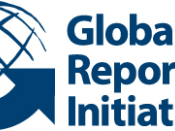"The business of business is business" - or at least it used to be! It was not too long ago when companies single-mindedly pursuing "the bottom line" and "shareholder value" were considered morally justified in their own right. How times have changed.
With the entrance of the "stakeholder society": transparency, corporate governance, accountability, public rights - these are the new maxims of today. According to the 1999 Millennium Poll on Corporate Social Responsibility, by PricewaterhouseCoopers, which surveyed 25,000 consumers, "Two in three citizens want companies to go beyond their historical role of making a profit, paying taxes, employing people and obeying laws; they want companies to contribute to broader societal goals as well." Let's consider the 'green' movement as an example. In the past 10 years, environmental issues have shifted from being a fringe movement for "bunny-huggers" to a global concern in world politics. Witness the Rio Earth Summit in 1992, the success of the German Green Party in Europe, the Kyoto Protocol on addressing climate change in 1997.
The spill-over effect into the business sector has been self-evident. Thousands of companies world-wide are signing up to voluntary environmental standards, such as the International Standards Organisation's 14001 Environmental Management System, the United Nations Development Programme's International Declaration on Cleaner Production, or the Responsible Care Code of Practice of the chemicals industry.
Triple-Bottom-Line Reporting
At annual meetings, concerned shareholders are increasingly calling on directors to account for the social and environmental impact of their corporation's operations.
While environmental, health and safety reports are now increasingly common, reports that tackle social issues such as human rights and child labour are not. Says Mary Robinson, the UN High Commissioner for Human Rights: "In the last few years, perceived corporate complicity in human rights abuses has damaged corporate reputations and, in some cases,


